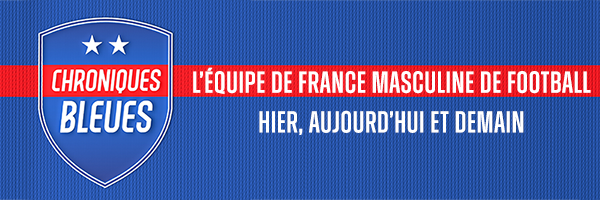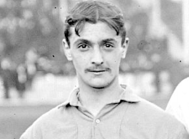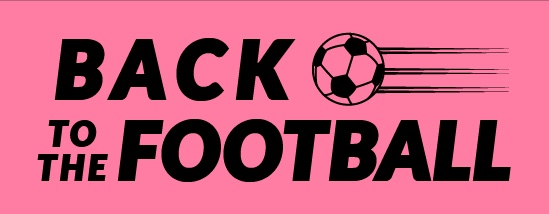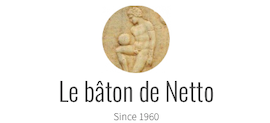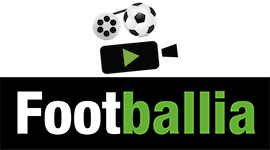Lire sur le site de Soccer Nostalgia The Soccernostalgia Interview-Part 34
Lire la version en anglais. English version here
Cet article fait partie de la série Dialogue avec Soccer Nostalgia
Soccernostalgia : Michel Hidalgo a commencé la saison 1979/80 après une saison quelque peu entachée par la longue blessure de Platini. L’Euro 1980 paraît hors d’atteinte. Quelle était l’ambiance au début de cette saison ?
Bruno Colombari :Il reste encore une chance de qualification pour l’Euro, mais elle ne dépend pas que de l’équipe de France. Cette dernière devra battre la Suède et la Tchécoslovaquie et espérer que cette dernière perde deux fois, dont une fois à domicile contre la Suède ou le Luxembourg. Très improbable donc. Le récent transfert de Michel Platini à Saint-Etienne devrait lui permettre de franchir un palier pour devenir un des meilleurs joueurs d’Europe. Mais l’objectif réel est plutôt de commencer à préparer la Coupe du monde 1982, dont les éliminatoires commenceront dans un an.
La saison a commencé le 21 août, avec un match amical à Paris contre le club ouest-allemand du Bayern Munich avec Karl-Heinz Rummenigge et Paul Breitner. La France s’est imposée (4-1) face à une équipe de premier plan. C’était le premier match de Michel Platini en tant que capitaine. Que retenez-vous de ce match ?
Il avait une très forte teinte stéphanoise avec Lopez, Larios, Platini et Rocheteau au coup d’envoi, puis Zimako et Janvion en cours de match. Platini jouait en position de meneur de jeu reculé, assez loin des trois attaquants. Mais ça n’a pas empêché les Bleus de mener 2-0 à la mi-temps et de l’emporter assez facilement, comme souvent pour ce match contre une équipe de club. Jean-François Larios, qui va faire une grosse saison avec les Verts, a été très bon dans un registre de milieu relayeur à la Vieira.
Le 5 septembre, la France s’est rendue à Stockholm pour affronter la Suède lors de son avant-dernier match de qualification au Championnat d’Europe. La France a été impressionnante en s’imposant (3-1) avec Lacombe et Platini en très bonne forme. Que pensez-vous de ce match ?
Il laisse évidemment beaucoup de regrets à cause du match nul 2-2 de 1978. Si les Bleus avaient gagné un an plus tôt, la qualification se serait jouée à la différence de buts avec la Tchécoslovaquie. La différence, évidemment, c’est que Platini est là, et qu’il retrouve son compère Bernard Lacombe. Le milieu inédit formé de Moizan et Bathenay prend le dessus sur les Suédois, et sur l’aile gauche, Loïc Amisse fait oublier Didier Six. Les Bleus jouent vite, combinent bien et gagnent facilement. La défense, plutôt athlétique avec Battiston, Specht et Bossis en plus de Lopez devant Dropsy, a bien tenu le choc.
Avant ce match contre la Suède, pouvez-vous décrire l’enchaînement des événements qui ont permis à Alain Moizan d’être convoqué en premier lieu et de manière inattendue de débuter en tant que débutant ?
C’est Henri Michel qui devait être titulaire, mais il s’est claqué juste avant le début du match. Alain Moizan n’était pas dans le groupe, mais Michel Hidalgo l’a convoqué pour remplacer Jean-François Larios, malade et forfait. Il se retrouve donc titulaire à la toute dernière minute, et fait bonne impression. C’est un joueur qui évolue à Monaco, avec qui il a été champion de France en 1978, et qui va remporter la Coupe de France en 1980. Il a déjà 25 ans, et on pense alors qu’il va gagner sa place de titulaire dans un milieu de terrain où, hormis Platini, il y a des places à prendre. Mais il ne s’imposera pas et ne comptera que sept sélections.
Le 10 octobre, la France a accueilli les États-Unis à Paris. Les équipes s’étaient rencontrées à la fin de la saison précédente en jouant sur Astroturf. La France s’est imposée (3-0) mais la rencontre a été entachée de violentes fautes américaines. Platini et le buteur débutant Roland Wagner ont été blessés et remplacés à la mi-temps. Que retenez-vous de ce match ?
C’était sans doute une erreur, car les joueurs américains encaissent rapidement trois buts en début de match et durcissent le jeu. Mais les deux fédérations avaient négocié un aller et un retour en mettant en jeu un trophée amical, la Coupe de la Liberté. L’ailier droit de Strasbourg Roland Wagner, qui avait réussi ses débuts en marquant après 18 minutes, sort à la mi-temps et ne rejouera plus en sélection. Michel Platini est aussi remplacé par Christian Lopez, qui récupère le brassard de capitaine pendant trois minutes avant de le laisser à Marius Trésor, entré à la mi-temps. Et à la fin du match, Gérard Janvion est expulsé après avoir contesté un carton jaune.
L’entraîneur de Saint-Etienne, Robert Herbin, a de nouveau critiqué le fait que ses joueurs soient sollicités et risquent de se blesser dans ce qu’il a décrit comme des matchs sans importance. Il a souligné que les joueurs et les clubs impliqués dans les matches de Coupes d’Europe devaient être protégés. Cela semblait être un problème permanent d’Hidalgo avec les meilleurs clubs ?
Oui, et ça durera encore jusqu’à la Coupe du monde 1982. A cette époque, il n’y a aucun joueur français à l’étranger (Didier Six partira à Bruges à la fin de la saison et Marc Berdoll, qui a évolué un an à Sarrebruck, ne fait plus partie des plans de Michel Hidalgo) et le sélectionneur s’appuie sur le ou les meilleurs clubs français du moment, que ce soit Monaco, Nantes ou Saint-Etienne. La proximité des matchs de l’équipe de France avec ceux des Coupes d’Europe sont sources de tensions, car les deux se jouent le mercredi, ce qui peut pénaliser les clubs en championnat de France (qui a lieu le samedi). Et régulièrement, les entraîneurs de club se plaignent quand leurs joueurs sont convoqués pour des matchs amicaux.
Le 17 novembre, la France accueillait la Tchécoslovaquie à Paris pour son dernier match de qualification à l’Euro 1980. Il manquait des titulaires dont Platini et Rocheteau. La France s’est imposée (2-1) et a mérité des éloges pour sa prestation. La France a été éliminée de l’Euro et il y avait beaucoup de regrets pour le point perdu à domicile contre la Suède la saison précédente. Comment cette victoire a-t-elle été perçue ?
Elle arrivait de toute façon trop tard car la Tchécoslovaquie avait encore un match à disputer après celui-là, à domicile face au Luxembourg. Les champions d’Europe en titre pouvaient donc se permettre de perdre, sans risquer l’élimination. Michel Hidalgo expérimente encore au milieu car Larios et Platini sont forfaits et Michel joue désormais en défense centrale à Nantes. C’est d’ailleurs le meneur de jeu Nantais Gilles Rampillon qui porte le numéro 10 et qui combine bien avec ses coéquipiers Loïc Amisse et Eric Pécout en deuxième mi-temps, en étant passeur décisif pour le deuxième puis buteur. Ce n’est que sa deuxième sélection, alors qu’il avait débuté en mars 1976 aux côtés de Platini, Six et Bossis. Jacques Zimako, lui, fait un festival dans la défense tchécoslovaque et manque même une balle de 3-0. Plus tard, Michel Hidalgo regrettera de ne pas l’avoir emmené en Espagne, pour la Coupe du monde.
Le 27 février 1980, la France accueille la Grèce à Paris. Hidalgo a utilisé le match pour expérimenter et de nombreux joueurs ont fait leurs débuts. La France s’est imposée (5-1) face à une équipe qualifiée pour l’Euro. Quels sont vos souvenirs de ce match ?
Tout d’abord le premier doublé en sélection de Platini, puis une avalanche de buts en deuxième mi-temps, trois en quatre minutes. Il y a aussi un pénalty pour la France, ce qui n’était pas arrivé depuis que Michel Hidalgo était sélectionneur. Ce n’est pas Platini qui le tire (il ne le fera qu’à partir de 1982, contre la RFA à Séville) mais Bathenay. C’est aussi le jour des débuts en sélection de Jean-Luc Ettori, le gardien de Monaco, qu’on en reverra que pour la Coupe du monde deux ans plus tard, de Bernard Genghini et de Yannick Stopyra qui brillent avec Sochaux. Stopyra mettra du temps à s’imposer en sélection. Il reviendra après l’Espagne, manquera l’Euro 84 et sera enfin titulaire au Mexique.
Le 26 mars, la France recevait les Pays-Bas à Paris. Les Néerlandais n’étaient plus l’équipe de la décennie précédente, mais contenaient toujours des personnalités comme Krol, Rep et les jumeaux Van der Kerkhof. Ce fut un match âprement disputé et qui s’est terminé sans but. Comment la performance de la France a-t-elle été perçue ?
Le match nul (0-0) est trompeur car il y a eu des occasions des deux côtés. Les Bleus se sont plaints auprès de l’arbitre italien Paolo Casarin de l’oubli de deux pénalties en début de match pour des fautes évidentes sur Six et Janvion. Mais les Pays-Bas, finalistes des deux dernières Coupes du monde, ont un statut différent de celui des Français. Hidalgo a musclé son milieu avec Didier Christophe et Dominique Bathenay en soutien de Michel Platini, qui peut jouer plus haut, près des attaquants dont le débutant monégasque Alain Couriol, que l’on retrouvera à la Coupe du monde. C’est un match plutôt encourageant, d’autant que les Néerlandais croiseront bientôt l’équipe de France en qualification pour l’Espagne 82.
Pour son dernier match de la saison, la France s’est rendue à Moscou pour un match amical contre l’Union soviétique le 23 mai. Les Soviétiques se préparaient pour les Jeux olympiques. Les Français ont été léthargiques dans leur seule défaite de la saison (0-1). Jean Tigana, partie intégrante du Carré magique, fait ses débuts internationaux. Était-ce juste le match de trop ?
C’est un match qui avait plus d’enjeu pour l’URSS que pour la France, surtout dans le contexte du boycott des JO de Moscou suite à l’invasion de l’Afghanistan par l’Armée Rouge à Noël 1979. Les deux équipes ne participeront pas à l’Euro, puisque l’URSS a été éliminée par la Grèce et la France par la Tchécoslovaquie. C’est l’occasion de voir débuter Jean Tigana au milieu de terrain, entre Didier Christophe et Michel Platini. Il fait forte impression et ne manquera que trois des 16 matchs à venir jusqu’à la Coupe du monde.
En revanche, on se souviendra de la réaction hostile du public moscovite vis-à-vis des joueurs Noirs de l’équipe de France, à savoir Janvion, Trésor, Tigana, Zimako et Couriol, entré à la mi-temps. Jacques Thibert l’avait relevé dans l’Année du football, sans porter de jugement, en disant que c’était « un événement historique mais peut-être appelé à se reproduire dans les années qui viennent ». Hormis Viv Anderson en équipe d’Angleterre (qui débuta en 1978), le football européen de sélection était quasiment fermé aux joueurs de couleur, comme on disait à l’époque. C’est l’honneur et la fierté de la France de l’avoir ouvert, depuis Raoul Diagne et Larbi Ben Barek dans les années 1930.
Quel bilan faites-vous de la saison en général ?
C’est une saison de transition, qui marque la fin de la première moitié des huit ans de Michel Hidalgo à la tête de l’équipe de France. Les Bleus ne participent pas au premier Euro, mais il n’y a que huit qualifiés, moins que de sélections européennes à la Coupe du monde. Si on compare avec le format du championnat d’Europe à partir de 1996 (16 participants), et encore plus de 2016 (24), ça voudrait dire que l’équipe de France a été éliminée au premier tour, ou en huitièmes de finale. Comme en 2008 ou en 2021.
Ce qui est plus inquiétant, c’est l’impression qu’après un démarrage spectaculaire, les Bleus semblent rétrograder depuis deux ans. La blessure de Platini à l’été 1978, puis sa première saison moyenne à Saint-Etienne ont évidemment eu un impact sur l’équipe de France. Les résultats sont plutôt bons, avec quatre victoires (cinq en comptant celle face au Bayern), un nul et une défaite. Mais si la défense est enfin stabilisée, le milieu tourne sans arrêt et l’attaque cale, comme on l’a vu face aux Pays-Bas et à l’URSS. Les essais ont été nombreux, et parmi eux, il faut noter ceux de Genghini et de Tigana. Le premier a joué vingt minutes avec Platini, le deuxième un match entier. Ce n’est pas encore le carré magique, mais on s’en approche petit à petit…

